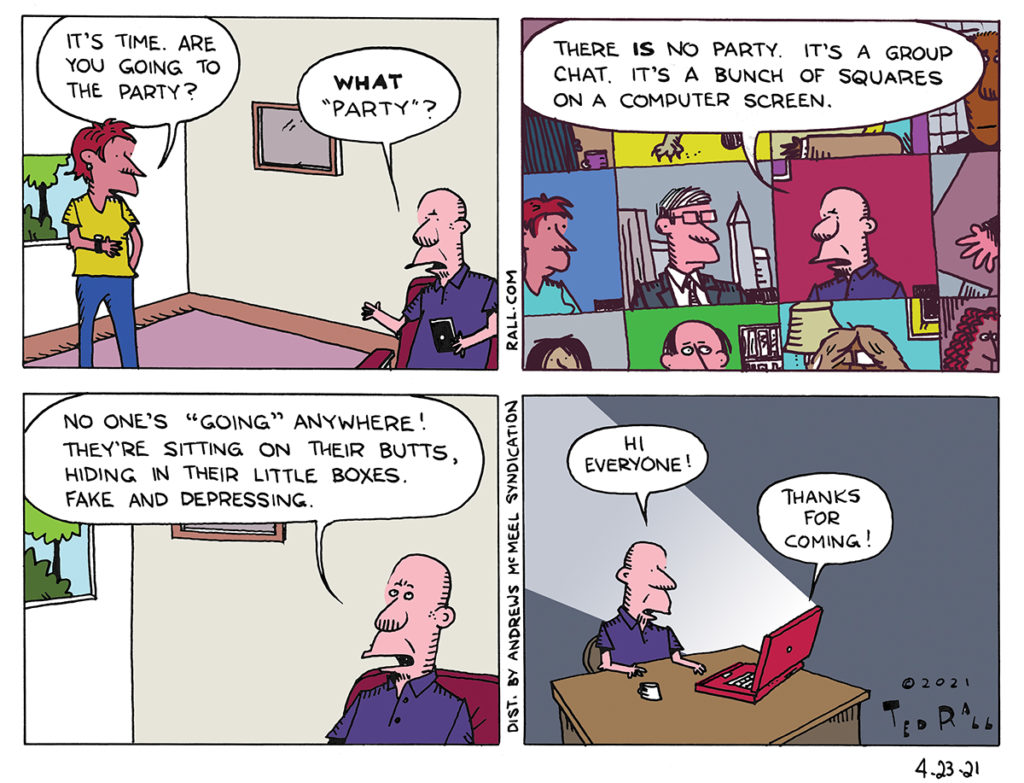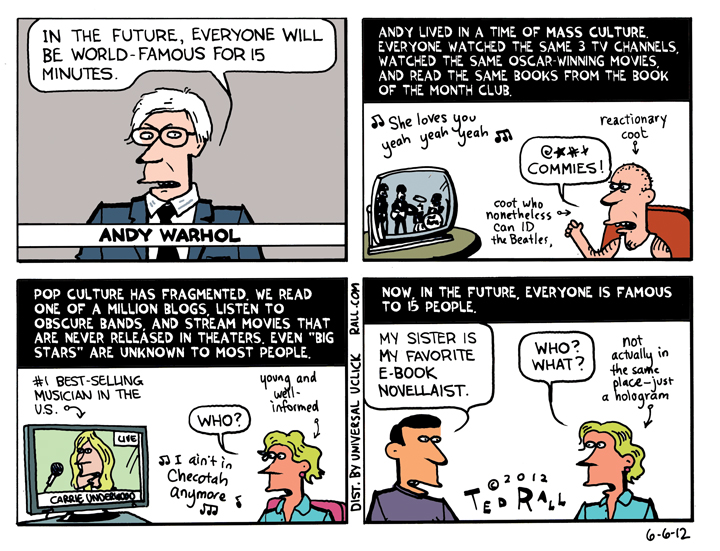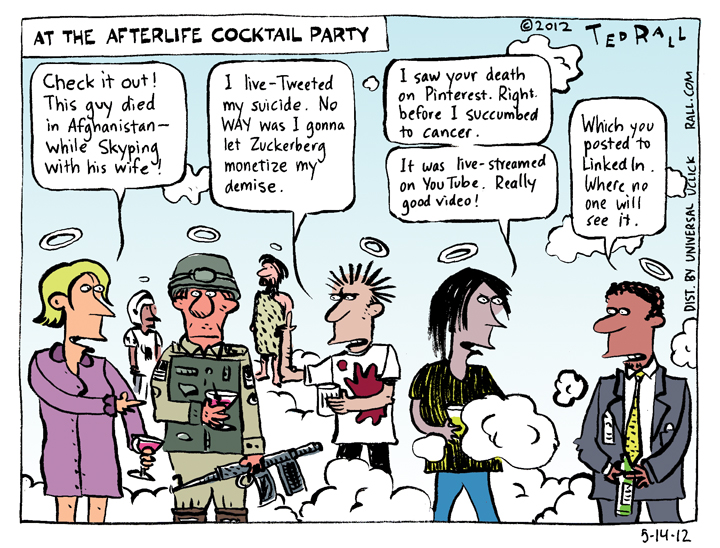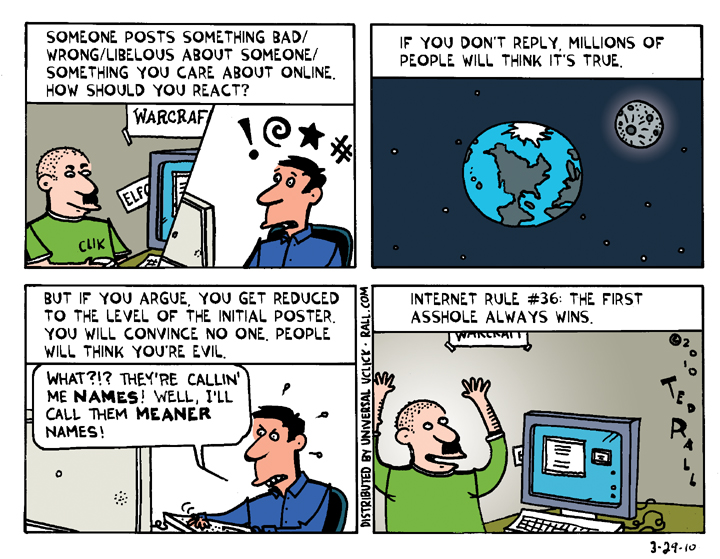There is something Orwellian in the sense that it violates the meaning of language by pandemic-related vocabulary. You don’t “go” to a Zoom meeting. You just click into it.
5 Things the Government Must Do Now to Avoid Collapse and/or Revolution
 The COVID-19 medical and economic crisis remains mostly unaddressed by both the Republican and Democratic parties. They have only passed one piece of legislation that significantly helps workers: supplementing existing state unemployment benefits by $600 per week. Those additional payments expire in four months. Until then many people who are out of work will receive about $1000 a week. If the past is precedent, Congress is likely to renew the law.
The COVID-19 medical and economic crisis remains mostly unaddressed by both the Republican and Democratic parties. They have only passed one piece of legislation that significantly helps workers: supplementing existing state unemployment benefits by $600 per week. Those additional payments expire in four months. Until then many people who are out of work will receive about $1000 a week. If the past is precedent, Congress is likely to renew the law.
Aside from expanded unemployment checks, the government has been useless.
Here are the essential basic things Congress and President Trump must do in order to avoid economic collapse, mass starvation, an epidemic of violent crime reminiscent of “A Clockwork Orange” and political unrest up to and including revolution.
They must do it now.
A Universal Basic Income is the smartest fastest way to stimulate the economy by keeping money flowing from consumers. Neither political party seems to care enough about the prospect of street riots to pass a UBI. But they need to do it yesterday to avoid catastrophe tomorrow. Flat UBI payments are unfair to people who live in expensive cities and states; the cost of living in my hometown of Dayton, Ohio is half of Manhattan. Weight UBIs according to living costs.
COVID Care
At bare minimum, medical treatment for COVID-19 and related ailments (bronchitis, pneumonia, etc.) should be free from a patient’s first test to their last breath in a ventilator. It should be free for everyone: insured, uninsured, homeless, prison inmate, undocumented worker for an obvious reason: if an illegal immigrant contracts the coronavirus, they can transmit it to you. It’s to everyone’s advantage that everyone have access to medical care.
Theoretically, the new Families First Coronavirus Response Act does that. Not in reality. “Our health care system is a mess and the law does not explicitly prohibit charging you if you go to an out-of-network provider. It also doesn’t address other ‘surprise billing’ problems,” Time reports. Treatment for COVID-19 can easily run $35,000 or more—not only should Americans not have to pay, they can’t pay.
Whether you go to your physician or urgent care or the ER, no one who suspects she has COVID-19 should be asked for their insurance card. Healthcare providers should bill the federal government.
No leading Republican or Democrat — Donald Trump, Joe Biden, Mitch McConnell, Nancy Pelosi — wants to do this. Why? Because they’re stupid, crazy or both.
Draft the Immune
The Centers for Disease Control are rolling out a pilot program of a testing kit that can show if you have been exposed to the novel coronavirus and thus have the antibodies to resist a repeat infection. Authorities are considering issuing “immunity cards” to citizens who have had COVID-19. The idea is that people who are cleared could return to work. So far so good.
As much as I’d like to believe that political cartoonists and columnists are essential workers, if I have had and recovered from COVID-19 I could probably be more useful delivering food to the elderly, volunteering at a hospital, or performing some other essential task currently going undone because the person who usually does the job is either sick or home trying to avoid getting sick. Waiting tables could help save my local restaurant.
The government should retool the Selective Service System to draft recovered COVID-19 victims to perform services needed to help people and restart the economy.
Ramp up Distance-Learning
Parents, school children and college students in many cities are finding online instruction to be woefully inadequate at best. The most pressing issue is unequal access to the Internet. This is a huge problem. Fortunately, it’s easily fixable.
There are about 75 million students in the U.S. 17% don’t have home Internet access. That’s 13 million kids. A Wifi hot spot costs $50 a month. A Chromebook is $300. $4 billion, roughly the cost of occupying Iraq for a week, buys a home computer for everyone who needs one; $10 billion a year covers Wifi access. That’s the worst-case scenario; the government could get a volume discount.
Unfortunately, neither Democratic nor Republican politicians care about our kids enough to act.
Rent and Mortgage Holidays
31% of apartment dwellers failed to pay April rent. Expect that number to soar in May and June. Idiotically, the only relief offered by even the most progressive mainstream politicians is a moratorium on evictions and foreclosures. Moratoriums end. Courts reopen. When they do, millions of people could be thrown out onto the streets.
Even if you don’t care about them, think about your own property values. During the 2008-09 economic meltdown, mass foreclosures left millions of homes empty. These eyesores dragged down the values of their neighbors’ homes. We really are in this together.
People who can’t pay their rent or mortgage shouldn’t have to. And at the end of all this, they shouldn’t bear the burden of accumulated debt, interest or late fees. Congress should declare a rent and mortgage holiday until the end of the crisis.
To mitigate the hardship on landlords and lenders, real estate and other taxes should be waived during the same period. So should utilities like gas and electricity. Congress should consider a tax credit for property owners. Banks should receive Federal Reserve funding at zero percent.
So far, no mainstream politician is talking about this.
A War Holiday
Secretary-General António Guterres of the United Nations is calling for warring parties in the world to lay down their arms for the duration of the COVID-19 pandemic. “The fury of the virus illustrates the folly of war,” he said, emphasizing the fact that war makes it hard for humanitarian assistance to reach victims of coronavirus.
War is a tremendous waste of lives, resources and money that could be better spent elsewhere, and that has never been more evident than today. Yet at this writing President Trump has ordered the U.S. Navy off the coast of Venezuela in a classic demonstration of gunboat diplomacy. His administration is continuing Barack Obama’s benighted proxy war in Yemen. American drones are slaughtering innocent people in Somalia.
This is all monstrous BS and should stop forever but, at minimum, wars of choice can wait until the end of the coronavirus crisis. Yet here again neither party, Democrat or Republican, has endorsed the Secretary-General’s idea.
(Ted Rall (Twitter: @tedrall), the political cartoonist, columnist and graphic novelist, is the author of the biography “Bernie.” You can support Ted’s hard-hitting political cartoons and columns and see his work first by sponsoring his work on Patreon.)
SYNDICATED COLUMN: Pirate This Book
Borders Goes Bankrupt. Will Books Survive?
Borders Books and Music, which once employed 30,000 workers at more than 600 stores, is bankrupt. Those numbers have been halved. And even after these massive cuts, analysts say, Borders is probably doomed.
The next time you walk past the empty ghost store where your local Borders used to be, you may ask yourself: Are we becoming a post-literate society?
Everywhere you look the printed word is under economic siege. Despite a 20 percent increase in demand in recent years, libraries are laying off, closing branches and reducing hours. Newsweek, one of the most venerable titles in magazine history, was recently sold for a buck (plus a promise to assume tens of millions in debt). Twitter is priced at $3.7 billion, nearly twice the public enterprise value of The New York Times ($2.03 billion).
The key word, of course, is the one in front of the word “word”: “printed.” We are reading more than ever. Just not in print.
According to a fascinating new study conducted by the University of Southern California, 94 percent of all data is now stored in digital form. (That ticked up a point as you were reading this.) Thanks to the Internet and various gadgets we read about 4.3 times more words each day than we did 25 years ago.
The more words we read, however, the less we want to pay the people who write them. The Times of London lost 90 percent of its online readership after it put its website behind a $4-a-week pay wall.
Why does this matter? Quality. The Huffington Post, recently sold to America Online for $315 million, points to a possible future in which the rewards go to ruthless aggregators who cater to Google common search phrases with slideshows about kittens and Lindsey Lohan. They rely on free blogs for most of their content. We’re getting exactly what they pay for: crap.
If you think journalism is bad now, it’s going to get even worse. The message is as loud and brassy as Arianna: real journalism doesn’t pay. Inevitably the best and brightest are gravitating to other fields.
Another unintended consequence of the digital revolution is lower memory retention. I recall significantly more of what I read in print than online; I’ve found the same to be true of my friends.
Norwegian researcher Anne Mangen told Boston Globe columnist Alex Beam about a paper she published in The Journal of Research in Reading. Mangen believes that we remember more of what we read in print than on a computer screen. This additional retention is due to variables that serve as unconscious memnonic devices: fonts, position of text, images, paper texture, etc.
“The feeling of literally being in touch with the text is lost when your actions—clicking with the mouse, pointing on touch screens, or scrolling with keys or on touch pads— take place at a distance from the digital text, which is, somehow, somewhere inside the computer, the e-book, or the mobile phone,” argues Mangen. “Materiality matters…One main effect of the intangibility of the digital text is that of making us read in a shallower, less focused way.”
My personal experience convinces me that there is a difference. On the Kindle, everything looks and feels the same. When I read the Times on newsprint, part of what helps me remember a story is the ad that ran next to it and the photo underneath. Sure, Kindle readers remember much of what they read. But not as much as old-fashioned bookworms.
It is hard to quantify the value of a country’s intellectual life. But as Americans read more and more, less of it printed, it is difficult to avoid the conclusion that we are losing something precious and irreplaceable.
So what’s the solution? European booksellers, publishers and newspapers receive generous government subsidies. Here in the U.S., where pseudo-free markets are a national religion, the feds bail out billionaire bankers, not bookstores.
In order to successfully compete with online sales and e-books, brick-and-mortar retailers will have to learn the lesson of Borders: middle of the road equals mediocre.
Beginning at least ten years ago Borders buyers began eschewing risks. Buying into the “blockbuster mentality” of stocking stacks of sure-thing bestsellers, they stocked fewer books by midlist authors—profitable, but not bestselling, titles. Browsers found fewer surprises at Borders. As for top-selling books, they’re cheaper at Costco and on Amazon.
Barnes and Noble has been struggling too, but their strategy seems to stand a better chance than Borders. B&N’s inventory is wide as well as deep. The fronts of their stores feel “curated,” the way good independent stores bring in customers with the promise of discovery and serendipity. If consumers want something obscure, odds are there’s a copy or two in the back, spine out.
It’s a frightening thought: America’s intellectual future may depend on the fate of a superstore.
(Ted Rall is the author of “The Anti-American Manifesto.” His website is tedrall.com.)
COPYRIGHT 2011 TED RALL




